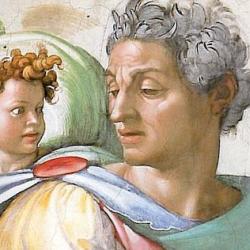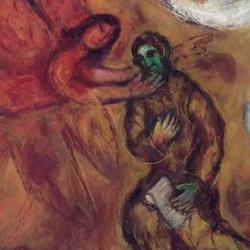INTRODUCTION
Isaiah’s oracle concerning the “valley of vision” focuses on Jerusalem (vv. 9-10) and specifically on the house of David (vv. 15-25). Though the city is full of confidence, Isaiah sees disaster looming. Like Babylon in the previous oracle, Jerusalem is unprepared to go through the valley of the shadow of death.
THE TEXT
“The burden against the Valley of Vision. What ails you now, that you have all gone up to the housetops, you who are full of noise, a tumultuous city, a joyous city? Your slain men are not slain with the sword, nor dead in battle. All your rulers have fled together; they are captured by the archers . . . .” (Isaiah 22:1-25).
THE SETTING
Scholars debate the historical setting of this oracle. Some have suggested that it refers to the period between Hezekiah’s tribute to Sennacherib (2 Kings 18:13-16) and Sennacherib’s invasion (2 Kings 18:17-37). During that brief period, it seemed that Hezekiah had bought peace, like his father Ahaz before him. Others point to the completion of Hezekiah’s tunnel (2 Kings 20:20), an engineering wonder that gave Jerusalem hope that they could endure a siege (cf. Isaiah 22:11). Isaiah sees that even Hezekiah’s tunnel will not be enough to save the city from Babylon. Whatever the specific setting, something other than Yahweh has made Jerusalem arrogant (Isaiah 22:11).
DAY OF PANIC
Isaiah is astonished at Jerusalem’s happiness (vv. 1-2). The city is full of noise (v. 2), but Isaiah sees valleys full of chariots (v. 7). The people want to sing and rejoice, but Isaiah turns away to lament about the approaching catastrophe (v. 4). If the warriors of Jerusalem had died in battle, the city could at least celebrate their heroism, but the men will be captured and slaughtered (vv. 2-3). Yahweh has exposed the city and left her defenseless (v. 8), and the Hebrew word for “uncover” ( galah ) means both to “strip naked” and to “go into exile” (stripping the land naked). Yahweh is bringing a day of panic, when the walls will be broken down (v. 5) and when Judah’s enemies will make breaches in the walls (vv. 9-10). Because of this, the Lord is calling Jerusalem to repentance, to fasting rather than feasting (vv. 12-13). Yahweh plays a dirge, but the people of the capital want to dance. Yahweh has uncovered Isaiah’s ear (v. 14) so he can hear the tune of the times.
DAVID’S STEWARD
The steward of the house of David embodies the future of the capital city and of the Davidic kingdom. The current royal steward, Shebna, has spent his tenure planning a monumental tomb so that he will be remembered after his death (v. 16). He represents the arrogant complacency of the city as a whole. Yahweh will roll him up like a ball and throw him out into the country (vv. 17-18). He will die far from the city, in the open country, and all his chariots will be destroyed. But Yahweh does not leave David’s house without a chief. He will replace Shebna with another steward, “My servant Eliakim” (v. 20), and will invest him with the robes and symbols of office (vv. 21-22). Specifically, he will give Elikim the key of the house of David, the authority to give or deny access to the king (v. 22). So long as Eliakim remains Yahweh’s servant, he will be a peg in a firm place, bearing the glory of David (vv. 23-25). If he fails, he and the glory of David will fall to the ground. Even then, Yahweh points ahead to a greater Davidic steward, who will carry the key of the king’s house forever (Revelation 1:18; 3:7-8).










